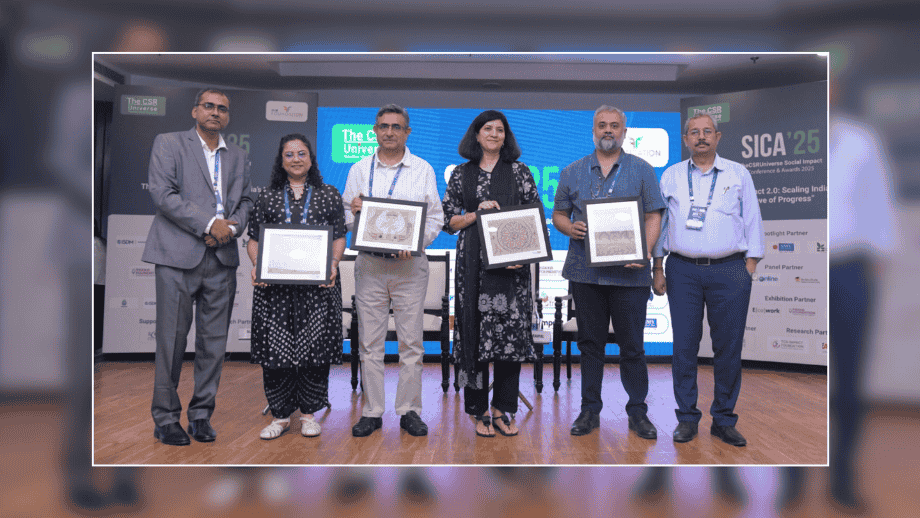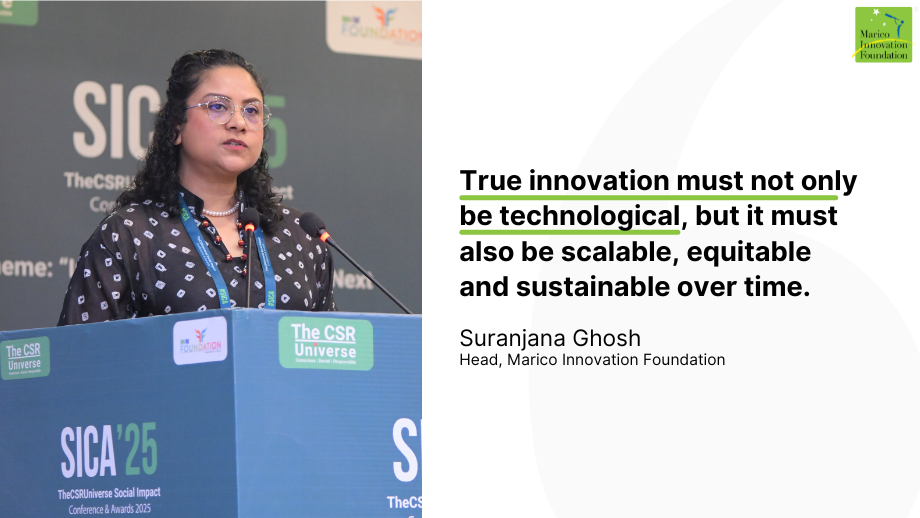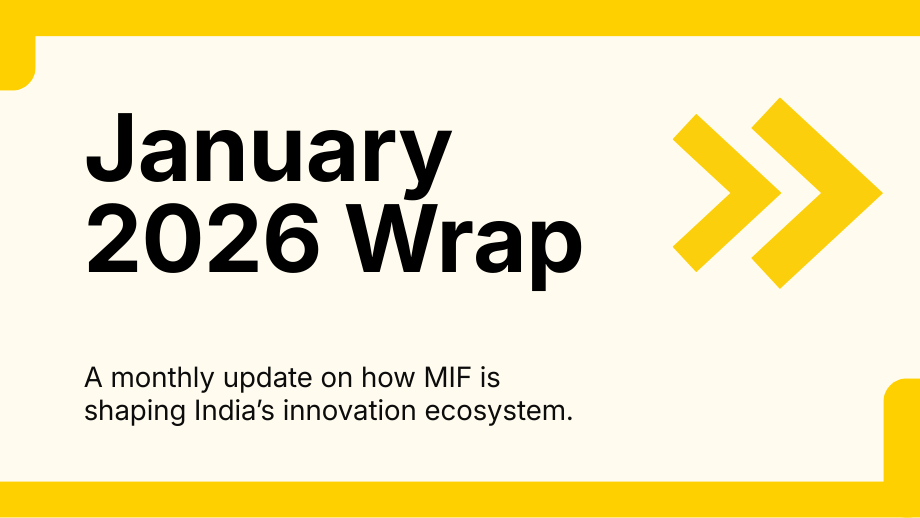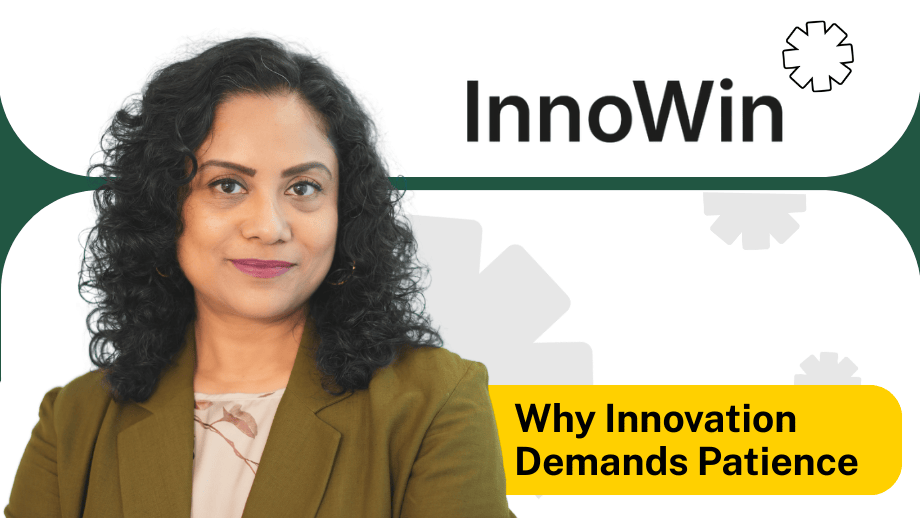Innovation
The Art Of Problem Solving With Dr. Vaishali Gode
A conversation on purpose-driven innovation, collaboration, and building ideas that last
Scaling innovation takes more than tech — it takes mentorship, trust, and ecosystems that turn breakthrough ideas into lasting impact.

We often talk about innovation as a spark, an idea, a prototype, a breakthrough. But what happens after that idea takes shape? How do we scale it, sustainably and equitably?
As Head of Marico Innovation Foundation, I, Suranjana Ghosh, had the privilege of sharing my thoughts on the role of technology and AI in scaling impact at the CSR Universe Social Impact Conference & Awards (SICA’25).
Over the last two decades, working across the intersections of business, social impact, and sustainability, I have seen one truth play out repeatedly: innovation is not a solo sport, it’s a collective journey. What makes an innovation truly transformative is the ecosystem around it, trust networks, mentorship, and collaboration that carry it from idea to impact.
At MIF, we have learnt that mentorship goes beyond seed capital or a great product. It is the voice in the room that asks tough questions, the guidance that helps founders refine their pitch, identify scalable markets, or rethink distribution models.
This is why we built the Scale-Up program, our no-equity accelerator that provides deep-rooted, bespoke mentorship for innovative startups in agri-technology, clean technology and plastic waste management, creating socio-economic and environmental impact to addressing India’s most urgent challenges.
Consider Atomberg Technologies, an energy-efficient appliances company. When they joined Scale-Up, the breakthrough idea was ready, but widespread adoption needed sharper market alignment. Over four years, Atomberg compressed their learning curve, navigating online sales, retail distribution, and integrated marketing and saw a growth in revenue from ₹4 crore in 2016 to over ₹1,000 crore in 2025.
Or take Ishitva Robotics Systems, whose AI-driven waste sorting technology had the power to revolutionise recycling. With a focused go-to-market strategy and ecosystem partners, they scaled revenues by 5x and elevated their growth trajectory
These journeys reaffirm that scale requires stamina, networks, and patient allies.

At MIF, we measure both impact and business value: waste diverted, carbon saved, livelihoods generated, but also partnerships forged, funding raised, and markets entered. Because lasting innovation is as much about market realities as it is about technology.
As our Chairman, Mr. Harsh Mariwala, often says, “Building a meaningful business is a marathon, not a sprint.” At MIF, we stay with founders for the long run, helping them grow, fail, pivot, and try again.
Looking ahead, I see a community that is more than inventors. We are guides, allies, and co-builders of systems that will allow the next generation of innovators to thrive.
This is the journey we call Innovation with Impact and Scale. And it is a journey we are deeply committed to walking together.
——————————————————————————————————–
Want more insights like these?
These perspectives were published on InnoWin, MIF’s newsletter, where we regularly feature thought-provoking insights from the country’s most visionary entrepreneurs, investors, and change-makers. Subscribe to receive exclusive innovation wisdom directly in your inbox.

A conversation on purpose-driven innovation, collaboration, and building ideas that last

Milestones, lessons, and the work already underway at MIF

Looking back at a year of learning, collaboration, and grounded progress at MIF.

Get insights from entrepreneurs, investors, and change-makers on innovation,
success and what it takes to get there.
